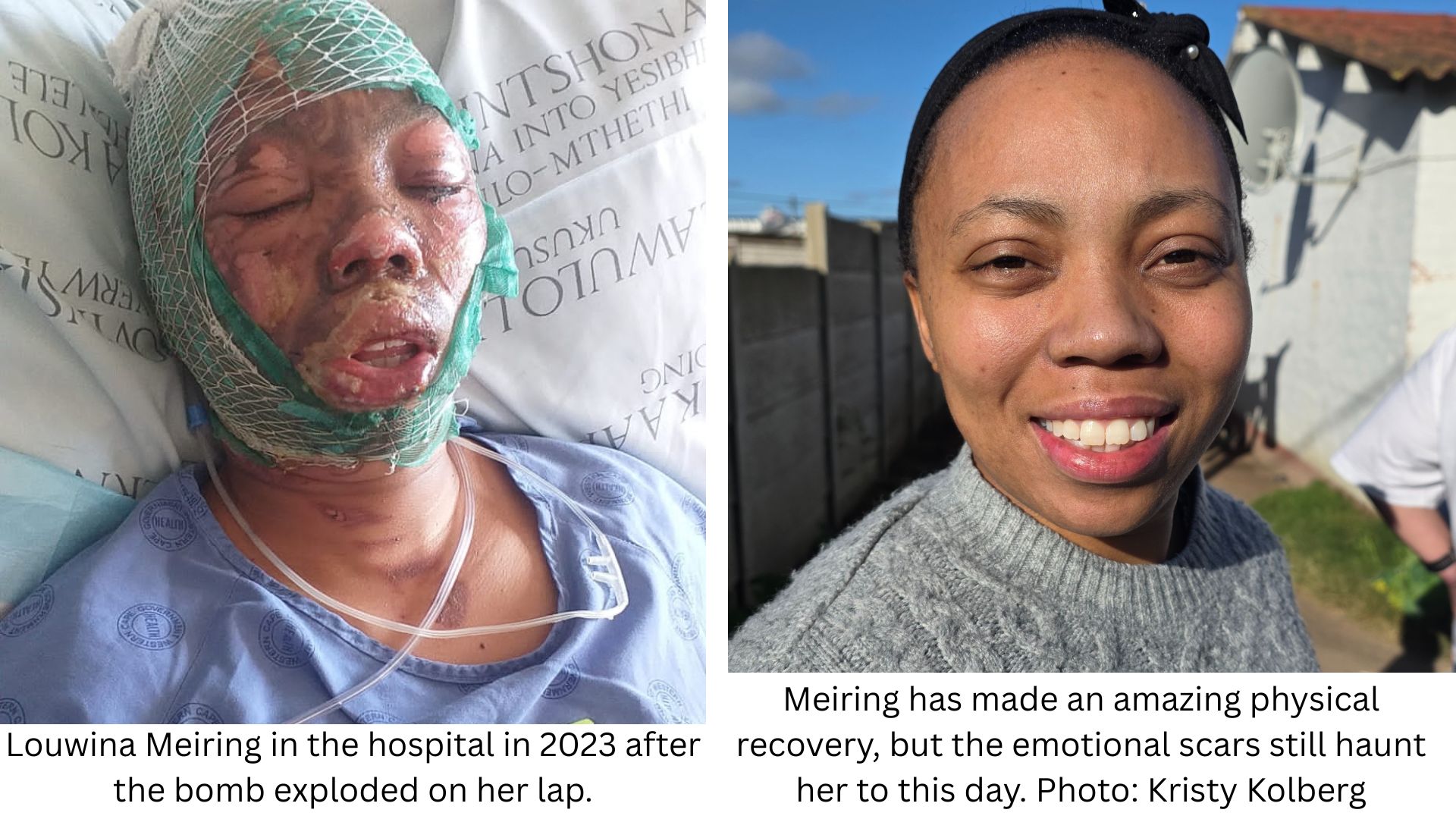Update
GEORGE NEWS - The March 2023 petrol bomb attack on a Go George bus in Pacaltsdorp, which left several passengers with severe burns and life-changing injuries, has again drawn attention to a serious gap in South Africa's legal and social security framework.
There is no statutory compensation for victims of terrorism or violent crime.
Legal expert George Kahn, a director at Richard Spoor Inc Attorneys in Cape Town, says the tragedy shows how far South Africa lags behind many other countries in supporting such victims.
"Nations like the United Kingdom, France, the United States, Canada, Australia and Israel have statutory third-party insurance or dedicated funds for victims of terrorism.
In contrast, South Africans injured in such incidents are left to navigate a patchwork of laws and insurance policies. Most of which exclude them," he says.
Insurance and social security limits
Kahn explains that the South African Special Risk Insurance Association (Sasria), the unique state-owned insurer, is restricted to covering damage to property caused by unrest, riots or terrorism. Natural disasters may qualify, too.
Established to provide cover against politically motivated unrest, Sasria insures against damage to property caused by riots, strikes, terrorism and other forms of public disorder.
However, its mandate is strictly limited to infrastructure and property damage. It does not cover personal injury, medical expenses or compensation for loss of income.
"This gap was already exposed during the Covid-19 pandemic, when it became clear that Sasria could not respond to losses caused by infectious diseases," Kahn notes. "The same problem now confronts victims of terrorism."
Other avenues also closed
In theory, victims could turn to existing public funds. But here too the law provides little comfort.
The Road Accident Fund (RAF) compen-sates victims of road crashes caused by the negligent driving of a motor vehicle. In the Pacaltsdorp case, there was no crash and no negligent driver, which means the fund cannot apply.
The Compensation for Occupational Injuries and Diseases Act (Coida) is also of no use.
The act provides cover for workers injured in the course of their employment, but the courts have made it clear that intentional violent crimes fall outside its scope. Even when violence happens in the workplace, it is not considered part of an employee's ordinary duties.
"Whether the attack was carried out by terrorists, angry employees or reckless youngsters experimenting with explosives, Coida does not apply," Kahn explains.
 Five of the victims whose lives were irreparably changed after the attack in 2023: Michelle Twig, Chrystal Jonck, Louwina Meiring, Frederick Jantjies and Deon Adams. Photos: Kristy Kolberg
Five of the victims whose lives were irreparably changed after the attack in 2023: Michelle Twig, Chrystal Jonck, Louwina Meiring, Frederick Jantjies and Deon Adams. Photos: Kristy Kolberg
Limited legal options
That leaves victims with only a few legal routes. They could sue the perpetrators directly, but those responsible rarely have the means to pay damages. They could also try to hold the bus operator (George Link) or the State (in this case, George Municipality) accountable.
Employers, including transport operators, have a duty under the Occupational Health and Safety Act to take reasonably practicable steps to safeguard their employees and members of the public. However, Kahn argues that acts of terrorism are not risks most operators are expected to predict. Unless a proper risk assessment could reasonably have foreseen such an attack, it is difficult to prove negligence.
The State, meanwhile, can be held liable in certain circumstances if it has knowledge of a real and credible threat and fails to take protective action.
The Constitutional Court confirmed this principle in the landmark Carmichele v Minister of Safety and Security case.
But if there was no warning, Kahn says, then the State, like the passengers, is also a victim.

South Africans left vulnerable
The net result is that South Africans injured in acts of terrorism or violent crime are left without a guaranteed form of redress.
By contrast, if a British citizen had been on the bus and the attack was classified as terrorism, that person could have claimed compensation through the UK's statutory victims' fund. South Africans have no such right.
Kahn points out that this gap was considered as far back as 2002, when the South African Law Reform Commission briefly examined the possibility of a national compensation fund for victims of terrorism.
The proposal was shelved due to concerns about funding, administration and the difficulty of reliable police investigation. More than two decades later, nothing has changed.
"Nearly three years after the Pacaltsdorp attack, the survivors are still waiting for justice and compensation,"
Kahn says. "The sad truth is that under current South African law, they may never get it. However, they have access to the courts, as a guaranteed right under the constitution.
Terrorism is terrible, and in this country, the public is always the collateral."

Previous articles:
- Go George bus bomb: Accountability battle continues
- 2023 Go George bus bomb attack victims left in limbo
- Bomslagoffer eindelik tuis
- Bombing victim recovering well
- Bomb victim flown to Cape Town
- Minister visits George after bomb attack
- Reward offered for info on bus bombers
- Mayor visits bus bomb victims in Hospital
- Bus bombed, 11 injured
- Update: Bomb attack on a Go George bus
- Fourteen patients to hospital
- Commuters injured by bomb attack on a Go George bus
‘We bring you the latest Garden Route, Hessequa, Karoo news’
















